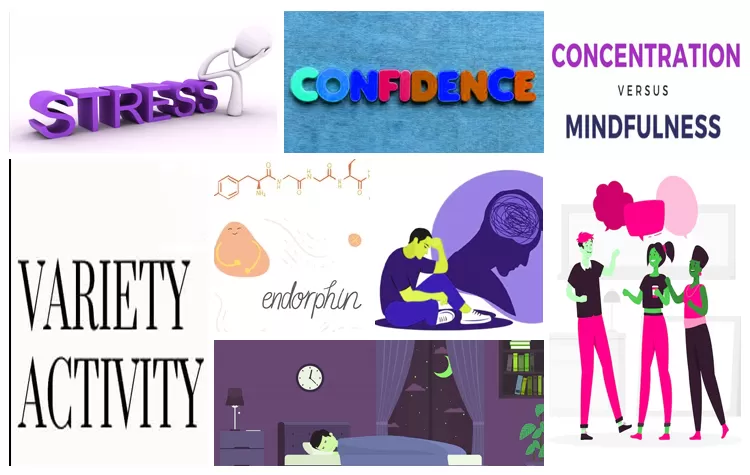As stress and anxiety overtake the fast-moving society, mental illness has lately become common. Luckily, constant research shows that exercising is efficient in improving well-being mentally. In this article, we'll establish the close relationship between physical activity and mental health, and how exercise reduces both stress and anxiety.
1. Release of Endorphins
- Natural Mood Elevators: Exercise leads to a release of endorphins, often referred to as "feel-good" hormones. These natural chemicals become pain killers and mood elevators that reduce stress and anxiety.
- Rapid Relief: Even minimal exercise promotes rapid improvement in mood for quick relief from anxiety, a more rapid and efficient antidote to anxiety.
2. Stress Hormones Reducer
- Low Cortisol: Exercise has been demonstrated to reduce cortisol, which is the body's biggest stress hormone. Exercise may be one avenue to handle cortisol levels as a route to lessen a reaction to stress.
- Increased Resilience: With time, consistent exercisers seem to increase in resilience for stress and will tolerate more pressure and situations than non-exercisers will.
3. Enhanced Sleep Quality
- Better Sleep Patterns: Exercise promotes quality, longer-term sleep, which is crucial to mental well-being. The sleep deprivation most often correlates with increased tension and anxiety.
- Easy Fall Asleep : The bodies are habitual in regulating the internal clock. When the rhythm inside the body improves, fall asleep becomes easier, and it even becomes harder to wake during times when they would normally sleep; thus, there is less fatigue and irritability linked to anxiety.
4. Improved Self-Confidence and Confidence
- Improvement in Physical Fitness: Fitness exercise involves physical fitness, which can give a person confidence in his or her body. Self-esteem is improved, and anxiety levels reduce considerably.
- Sense of Accomplishment: Setting and attaining goals in fitness enhances a feeling of accomplishment, thus improving self-esteem as well as providing a constructive channel through which stress can be managed.
5. Social Interaction
- Social Support: Group exercise, team sports, and outdoor activities promote social interaction. Building relationships with others will eventually help decrease feelings of loneliness and isolation as well as aid the person in managing stress and anxiety.
- Common Experiences: The shared experience of doing physical activities with friends or family members creates common experiences, strengthens bonds, and provides emotional support.
6. Mindfulness and Concentration
- Current-Moment Awareness: Yoga and tai chi programs not only teach mindfulness but also pay attention to the individual's awareness of his or her breath and movements. This enhances mental control and assists in reducing anxiety while allowing greater relaxation.
- Taking the Mind Off Problems: Exercise becomes a distraction from daily stressors. It affords the mind a temporary reprieve that allows considering one's problem from another angle.
7. Mental/Thinking Benefits
- Improves Brain Function: Exercise will improve the blood circulation to the brain by developing the cognitive abilities and memory. This enables people to think much more clearly and also to manage stress very well.
- Neurogenesis: This form of exercise triggers neurotransmitters in the body that stimulate the generation of new neurons in the hippocampus, an area in the brain that has characteristics related to emotions and response to stress.
8. Variety in Activity
- Find a sport or any activity you enjoy: it can be running and walking, dancing and swimming, or one of hundreds of other activities that can be done to keep you moving. The more you enjoy it, the bigger chance you have at making it part of your daily routine and also improving your mental health.
- Be more active in everyday life: take the stairs instead of using an elevator, walk or bike to work or university instead of driving or taking the metro, or shovel the snow rather than salting it. Any change will make you a more active person and is most likely going to boost mental well-being.
Conclusion
Benefits of physical activity do not end on the body alone; they play an important role in mental well-being, alleviating stress and anxiety. There is always exercise that will help enhance the mood; a good sleeper with increased self-esteem as well as a better resistance to encounters in real life. On this note, structured workouts or even small movements in daily activities can make all the difference in improving overall mental health.
